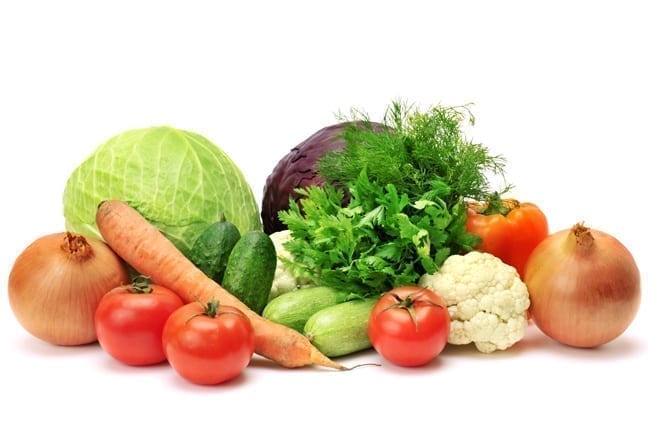You already know about the great benefits of adding more fruits and veggies to your daily diet, including the prevention and management of type 2 diabetes. Fruits and veggies also offer a wide variety of vitamins and minerals to help us stay healthy and maintain a healthy weight.MORE FROM HEALTHY DINING FINDER: Healthy Moms Raising Healthy KidsHere’s the latest scoop on new data! According to the preliminary results of a new Adventist Health Study at Loma Linda University, following a vegetarian diet could mean you live more than nine years longer than you might by consuming a meat-based diet. The study followed 96,000 US and Canadian citizens to determine the potential health implications of a vegetarian vs. a meat-based diet. The research revealed that vegans (who don’t even consume eggs or dairy) are, on average, 30 pounds lighter, five units lighter on the BMI scale and less insulin-resistant than meat eaters. The study also revealed that pesco-vegetarians (vegetarians who consume fish) and semi-vegetarians (vegetarians who limit animal products but still eat meat about once a week), have an “intermediate protection” against lifestyle diseases. However, the researchers acknowledged that lean people are also more likely to exercise regularly and avoid cigarettes than overweight people, which suggests that there are many other factors that contribute to the overall health of these study participants.MORE FROM HEALTHY DINING FINDER: Fire Up Your Diet With Chili PepperThese Adventist Health Studies are long-term studies that look at the links between lifestyle, diet, and disease among Seventh Day Adventists. If you would like to learn more about the Seventh Day Adventist lifestyle, check out the stories featured on the news.The bottom line: There is a lot of evidence behind the claim that vegetarian diets have numerous health benefits, including weight management and the prevention and management of type 2 diabetes.So does that mean that we should all be vegetarian? Not necessarily. I would suggest eating what you like, keeping in mind moderation and variety. Over the day, do your best to include foods from all food groups: vegetables, fruits, whole grains, low-fat dairy products and lean protein foods. I always try to make half my plate fruits and vegetables. You can even try to incorporate “meatless Mondays” into your weekly dietary routine. Be sure to include protein sources like egg, peanut butter, tofu, beans, lentils, nuts and seeds. For a 2000-calorie daily food plan, eat about 5½ ounces of protein foods every day. What counts as one ounce of protein, you ask? One egg or one Tbsp of peanut butter, a handful of nuts or seeds, or ¼ cup of cooked beans or lentils.MORE FROM HEALTHY DINING FINDER: It’s No YolkIf you are looking for some vegetarian recipes, try:
- Feta Watermelon Salad from BJ’s Restaurants
- Malaysian Stir-Fry from Annapurna
- Tabbouleh from Pasha’s Healthy Mediterranean Cuisine
If you are looking for some vegetarian friendly Healthy Dining choices, try:
- California Veggie Sandwich (560 calories, 23 g fat) from Boudin’s Bakery Cafe
- The Capital Grille Chopped Salad (320 calories, 7 g fat) from The Capital Grille
- Veggie Pita (Regular) (230 calories, 1.5 g fat) from Extreme Pita
- Veggie Burger #1 Wrapped in Lettuce (160 calories, 4.5 g fat) from Elevation Burger
- Vegetarian Pizza with Side Salad (450 calories, 14 g fat) from John’s Incredible Pizza Co




































